Mapping out new practices: May at ICE marked by research on tools for environmental protection
In May, the Project Center of the Institute for Contemporary Education was focused on implementing projects that directly and dynamically address the issue of environmental protection and environmental problems.
The focus of the activities implemented within the project, which took place in an international environment – Poland, Portugal and Romania – was largely on raising awareness and encouraging young people from the formal educational institutions within the LINK edu Alliance to take active participation in community development and sustainability, as well as education on global and local environmental issues.
Joint activities with partners from the Erasmus+ program confirmed the strength of ICE’s relationships with both regional and international partners, thus additionally strengthening the positive image our Institute enjoys within this international program.
Our representatives who participated in the implementation of these projects were strongly dedicated to mapping out and researching new practices in the application of modern technologies, and approaches related to climate change regulation, environmental protection, as well as encouraging algorithmic thinking in problem solving.
In this way, institutions of the LINK edu Alliance and ICE approach global problems in a proactive manner, and participate in the creation of a European and global activist and educational scene by raising the awareness of these matters among young people and implementing these projects.
Kick off GenZ4GreenDeal
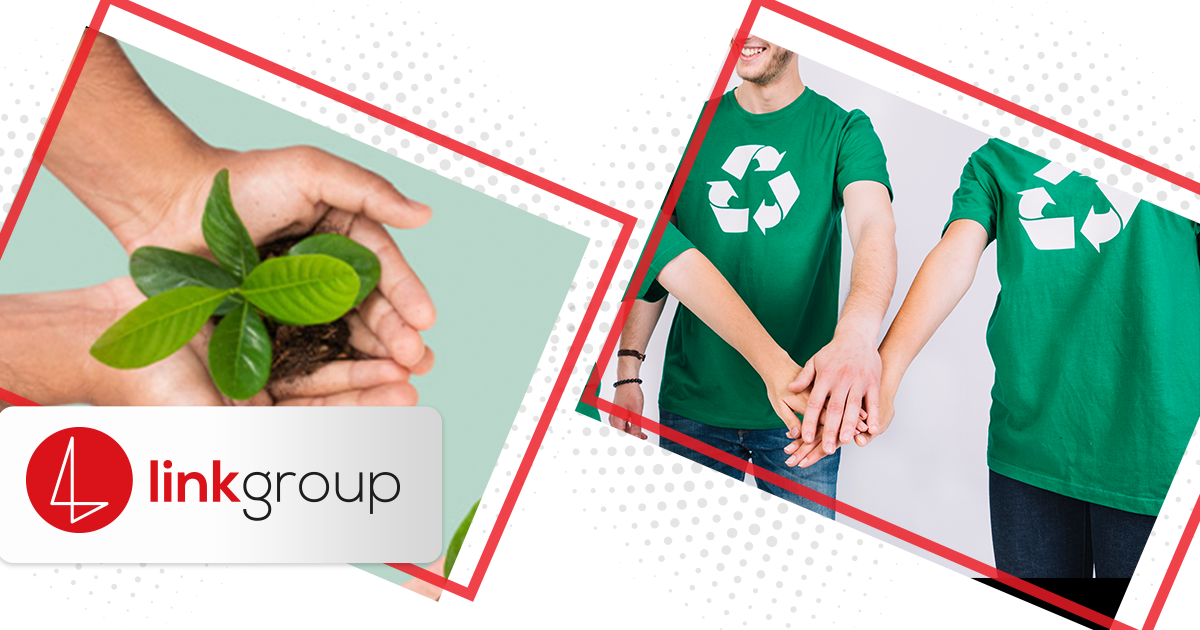
The GenZ4GreenDeal project, which will be implemented for the next two years, started with a meeting in Bucharest, which took place on May 11. This project aims to increase the competencies of young people with regard to their positive impact on community development and sustainability through the activities of young peers from different cultural backgrounds. The GenZ4GreenDeal project is an example of another successful collaboration with the Erasmus+ program and the European Commission in the field of strategic partnership in the youth field.
This project is centered around the fact that young people are more connected than ever thanks to advances in technology, and that they can contribute to building their local communities’ resilience to climate change, drive society’s progress, and inspire innovative solutions.
At the kick-off meeting held on May 11 in Bucharest, the steps for the implementation of this ambitious project were set: training program development plan, methodologies and online courses aimed at building the capacities of young people to take active participation in environmental protection, and increasingly think about sustainable development and other green topics.
The GenZ4GreenDeal project will consist of three main steps:
- Mapping out good practices and a local initiative aimed at young people related to sustainable development and environmental protection, which will be implemented by project partners (Serbia, Croatia, Romania, Malta, Bulgaria and Spain).
- Developing an online course with a detailed methodology, aimed at creating a handbook for youth workers. The online course will be piloted in partner countries, and then offered as an open resource for use. Expected results after the realization of the course are: increasing the number of young people who are familiar with the topic of sustainable development, as well as encouraging them to take action within their local communities.
- Launching the LEA GenZ podcast by our students, which will cover the promotion of green topics and environmental protection. This engagement of LEA students, with the support of relevant experts, will enable a selection of quality topics, tailored to the interests of young people so as to reach as many of their peers as possible.
In order to implement these steps as soon as possible, a one-week training for youth is planned, which will bring together 20 participants from six partner countries in Malta to improve the applied methodology, and contribute to their local community.
You can read more about the project here.
Digital Education Zone
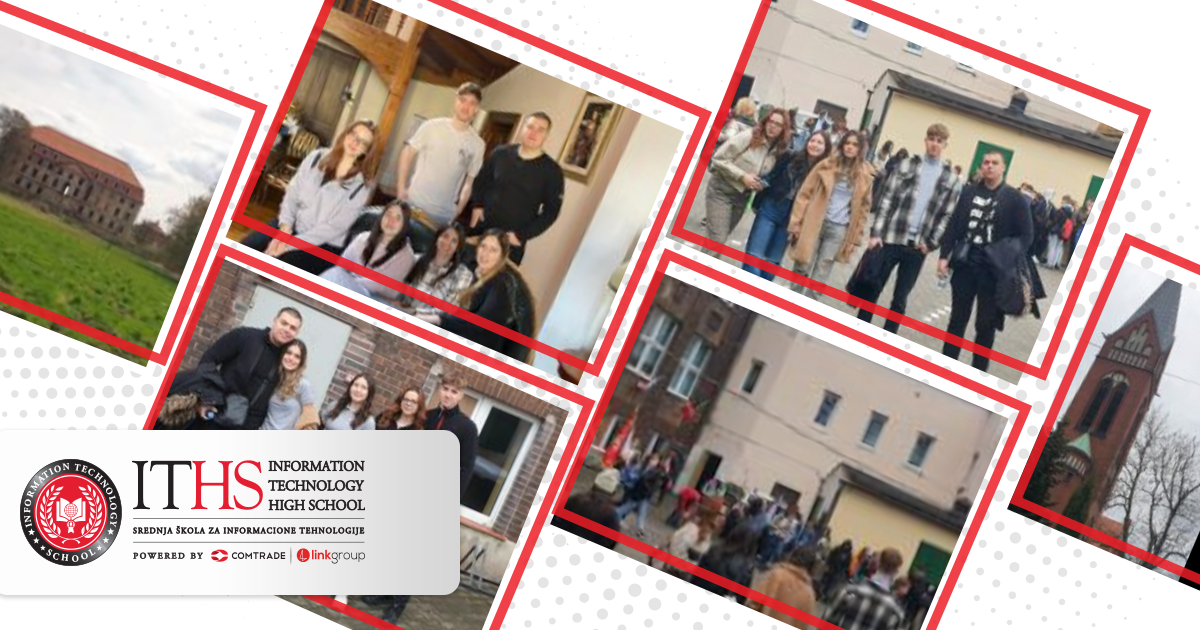
Students and teachers of Information Technology High School - ITHS visited the Polish school Zespół Szkół Ogólnokształcących i Ekonomicznych in May as part of the Erasmus+ project Digital Education Zone. The primary goal of this project is to improve the basic student skills and competencies related to digital literacy, while at the same time improving teachers’ professional development, and increasing parents’ media literacy.
Our students had the opportunity to meet with project partners and compare previous experiences in the implementation of jointly agreed methods aimed at integrating media and social media in teaching.
During their stay in the Polish town of Lubsko where the host school is located, students and teachers of ITHS had the opportunity to visit some of the many sights in Lubsko, including the local church, the Zary Gate Tower that dates back to the 15th century, a nazi bunker, the 10th-century Lubsko Castle, and a statue of Christ.
You can learn more about this visit to Poland and about the project here.
Barcode project and visit to Portugal
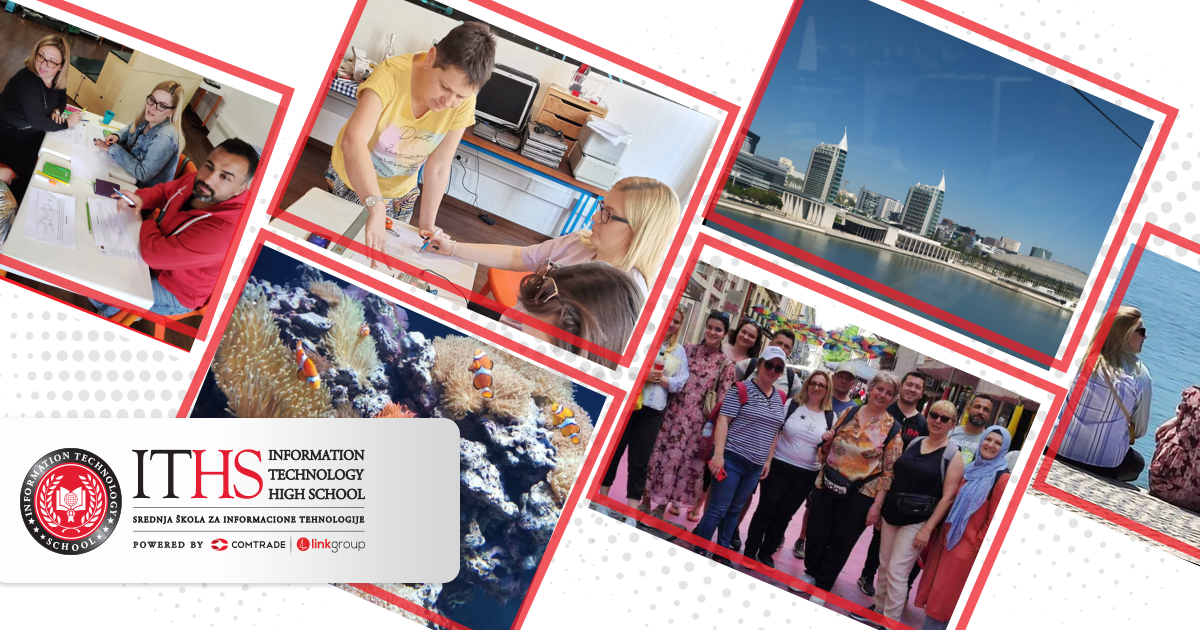
ITHS teachers visited Lisbon as representatives of the Information Technology High School on the implementation of the Barcode project within the Erasmus+ program. The main goals of this project are the application of innovative teaching methods, and raising awareness of the importance of coding methods as one of the most widely used tools for teaching students 21st-century skills.
In addition to ITHS, other schools that participate in the project include OOU Dane Krapčev from Skopje, North Macedonia, TOKI Secondary School from Turkey, and Agrupamento de Escolas de Portela e Moscavide from Portugal, which hosted ITHS representatives in May.
After an introductory tour of the Lisbon school, a workshop Algorithms in the Classroom was held, the aim of which was to encourage algorithmic thinking. Participants in the workshop were divided into mixed international teams. The next day in Portugal was reserved for programming – the task of each team was to program the movements of a robot around a complex set, as well as to demonstrate its various applications in different school subjects – physics, geometry, and biology.
You can read more about the Barcode project here.
Ocean Challenge – ClimAct now! project in Porto
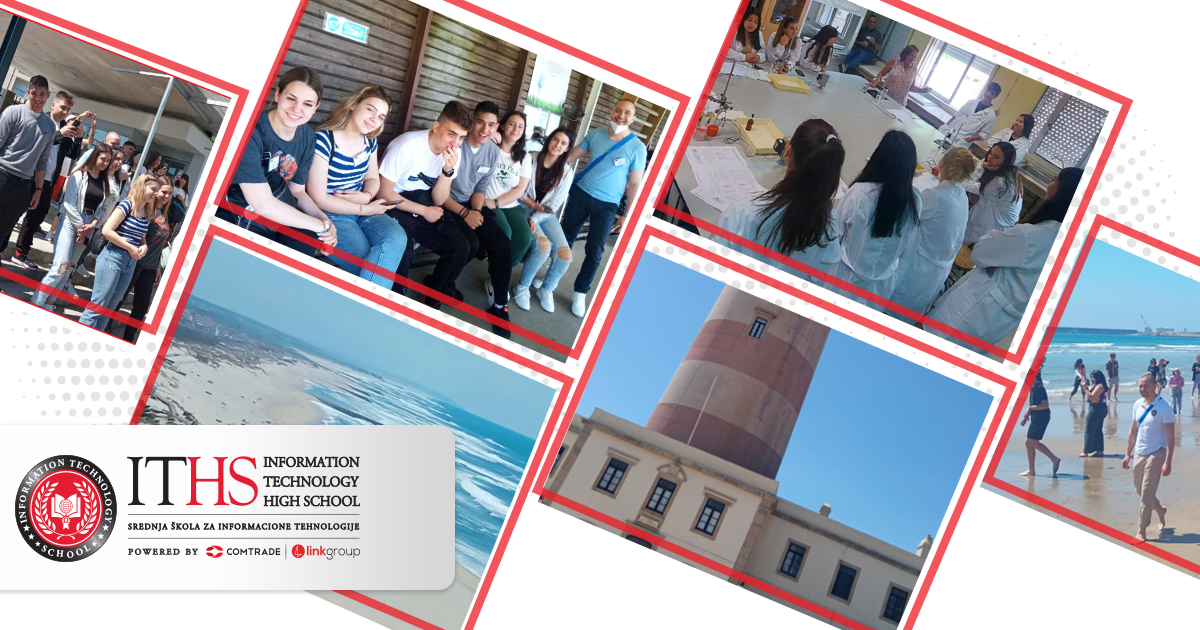
ITHS was proud to participate in the project ClimAct Now! which is part of the UN Agenda for People, Planet and Prosperity. The project member countries were committed to creating strategies for protecting the planet against climate change, the consequences of which threaten the potential of future generations for sustainable development.
As part of this important project, teachers and students of ITHS took part in the Ocean Challenge, which is why they headed to Portugal, to the partner school Agrupamento de Escolas de Frazão, Paços de Ferreira based in Porto, where they met project partners from Greece, Romania and Portugal.
One of the program activities for ITHS students included visiting the scientific research center CIMAR, located on the shore of the Atlantic. This center is dedicated to the studies of aquaculture, biodiversity and biotechnology. The students then performed a series of interesting lab exercises to see the effects of increased acidity on aquatic organisms in practice.
During these few days, our delegation participated in various activities related to environmental protection in the marine environment, and at the very end of their stay in Portugal, visited the environmental research center that analyzes the state of the coastal environment in this city.
You can read more about this project here.


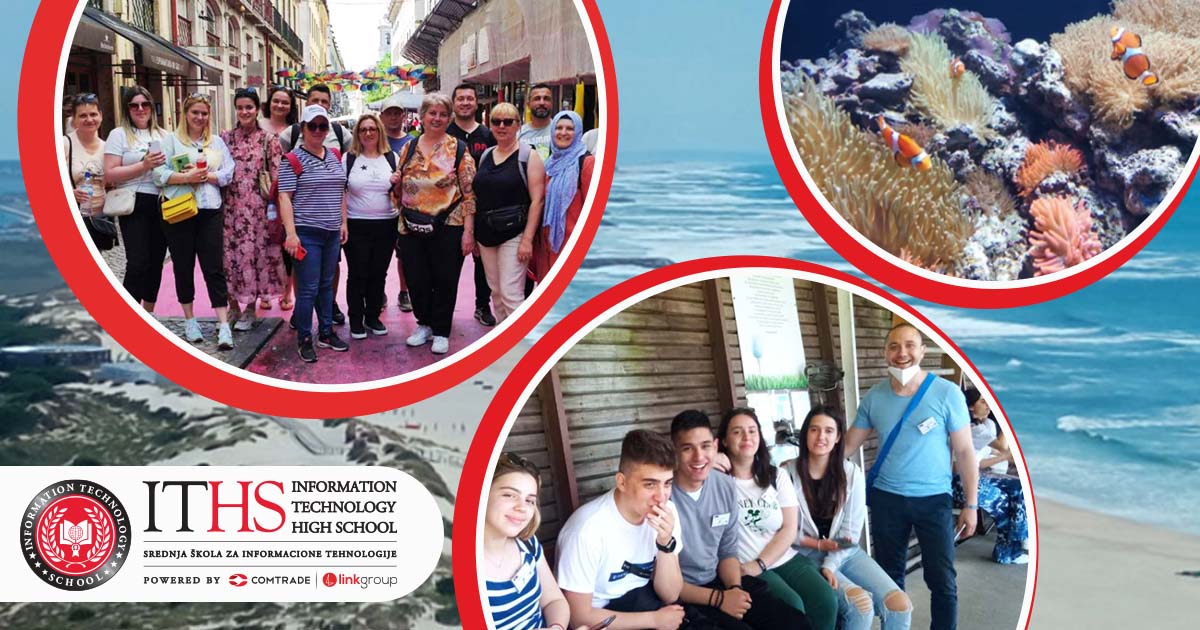
Leave a comment